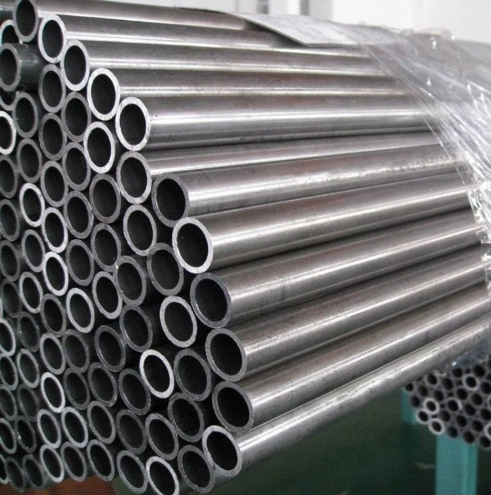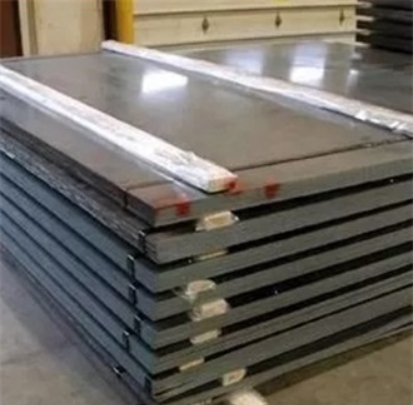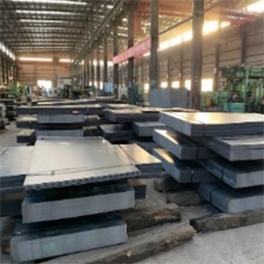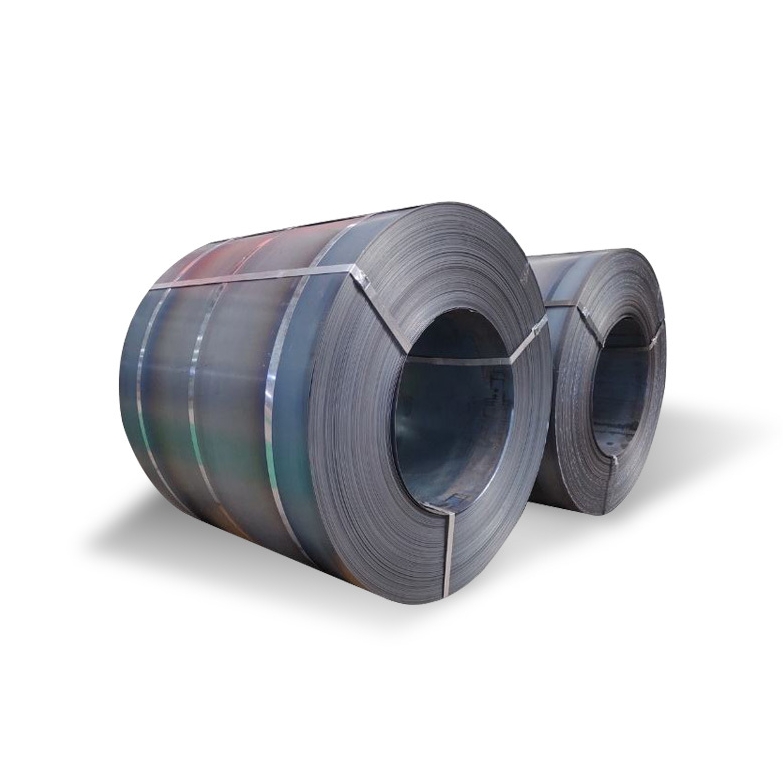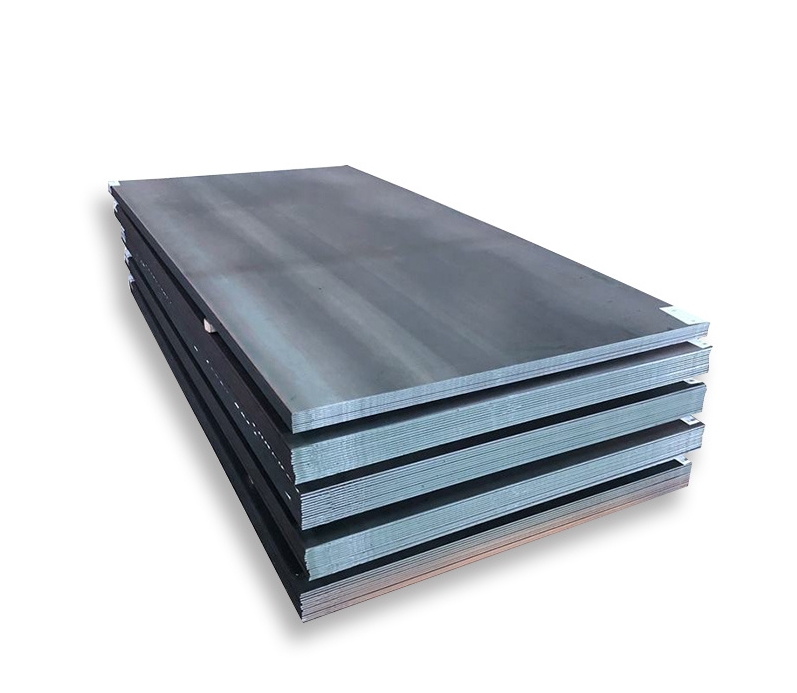For 2025 the market for ASTM A192 / ASME SA-192 seamless carbon-steel boiler tubes is mixed but stable compared with the prior year: typical ex-works factory pricing from major Chinese mills commonly sits in the USD 550–1,000 / metric-ton band for standard cold-finished A192 sizes, while Indian mill offers range roughly USD 700–1,000 / t (≈Rs.55–80/kg) and European finished stock or small-lot specialty orders frequently reach USD 2,000–2,800 / t or more. Final landed cost for a buyer depends strongly on tube size, finish (cold-drawn vs hot-finished), testing/traceability, quantity and freight/tariff environment.
What ASTM A192 / ASME SA192 covers
ASTM A192 (equivalent to ASME SA192) is the recognized specification for minimum-wall-thickness, seamless carbon-steel boiler and superheater tubes intended for high-pressure service. The standard prescribes chemistry limits, mechanical tests, hardness limits and minimum test operations that each heat must pass before release. This makes A192 a commonly specified grade in power plants, process boilers, and heat-exchanger applications where high temperature and pressure reliability are essential.
Typical sizes and tolerances
Under the standard, tubing is commonly produced in outside diameters from roughly ½ in (12.7 mm) up to 7 in (177.8 mm), and minimum wall thicknesses typically range from 0.085 in (2.2 mm) up to 1.000 in (25.4 mm). Custom sizes and heavier walls can be produced, but they must meet the same chemical and mechanical requirements. This size band makes A192 ideal for both small-bore heat-transfer tubes and larger boiler tubes used in water-wall or superheater circuits.
Chemical composition & mechanical properties
A192 requires carbon-steel chemistry controlled for carbon (low level), manganese, silicon, phosphorus and sulfur. Mechanical properties include minimum yield and tensile requirements and an elongation percentage; hardness limits are also specified so the tube will not be overly hard for forming/installation. The standard references general testing requirements (ASTM A450/A450M and other referenced ASTM tests) for acceptance. For critical projects you should request the full ASTM A192 text and confirm which edition applies to your purchase order.
Manufacturing routes — hot-finished and cold-finished seamless
Seamless tubes can be produced by piercing/rotary-piercing followed by hot finishing, or by cold drawing (cold-finished). Cold-drawn A192 tubes normally require subsequent stress-relief/heat treatment per the standard; hot-finished tubes may not. Cold-finished tubes typically have tighter dimensional tolerances and improved surface finish, at a premium cost. For A192 applications the buyer must specify delivery condition (hot-finished or cold-finished) because it affects price, lead time and mechanical behavior.
Required tests & documentation
Mandatory and commonly requested tests for A192 include:
-
Mill Test Report (MTR) with chemical analysis per heat.
-
Hydrostatic testing (or pneumatic alternative) to assure pressure integrity.
-
Flattening and flaring tests to check ductility where applicable.
-
Hardness testing (limit defined in the standard).
Ask suppliers for full third-party test certificates (EN-10204 3.1/3.2 where requested) and for traceability information (heat number → MTR). We always supply full MTRs and packing lists for export shipments.
Primary applications and what users need to check
A192 tubes are used in:
-
Boiler and superheater circuits in steam generation plants.
-
Heat exchangers and condensers in petrochemical and pulp & paper plants.
-
Marine boilers, refineries and other high-temperature/pressure applications.
When specifying A192, check service temperature, maximum working pressure, compatibility with water chemistry, and whether additional surface protection or post-fabrication heat treatment is needed.
Corrosion and environmental compatibility
Although A192 is a carbon steel grade, it is not corrosion-immune. Service conditions (chlorides, dissolved oxygen, pH, H₂S content) dramatically influence lifetime. For sour environments or H₂S exposure you must consult NACE MR0175 / ISO 15156 guidance for material selection and qualification — this sometimes requires alternate metallurgy or special testing. Ask your material engineer for HIC/SCC tests when hydrogen-induced cracking is a concern.
Market price drivers (2025)
Prices for finished A192 tubing are set by a chain of drivers:
-
Raw steel (HRC) spot and contract prices. Cold-rolled or hot-rolled coil base prices determine mill feedstock cost. Recent HRC base announcements and spot levels (2024–2025) have been in the $880–$1,140 / t range for finished coil, which cascades into pipe prices.
-
Seamless processing complexity. Seamless manufacture (piercing, elongation, cold drawing) costs more than ERW welded pipe; cold-drawn and strict-tolerance products cost more.
-
Testing and certifications. Full MTRs, third-party inspection, and special testing (NDT, HIC, NACE) add to cost.
-
Freight, logistics and tariffs. Ocean freight, container availability and any import duties materially change landed price. Recent tariff moves can add a meaningful premium for importers.
-
Lot size / MOQ and mill scheduling. Buyer’s order quantity affects per-unit price: larger tons reduce per-ton cost. Many mills post quantity-discount bands on their product listings.

Global price comparison (indicative for 2025)
Notes: prices below are indicative, per metric ton, for standard A192 sizes in standard deliverable conditions; they are not firm quotes. Always request a live quotation with your exact sizes, heat treatment, inspection and packing. Sources are representative supplier listings and market reports (May–June 2025).
| Region | Typical price range (USD / metric ton) | Typical trade note / drivers | Representative source |
|---|---|---|---|
| China (mills / exporters) | USD 550 – 1,000 / t | Lower factory base; wide variance by OD/WT, cold-drawn vs hot-finished, quantity. Large export capacity in Shandong area. | Made-in-China / mill listings. |
| India (mills / distributors) | USD 700 – 1,000 / t (≈ Rs.55–80/kg) | Domestic steel prices + local mill margins; price bands depend on national HRC and currency. | India price lists / Jindal etc. |
| USA (distributors / service centers) | USD 800 – 2,000 / t | Finished product premiums, smaller lot sizes, domestic mill prices and possible import tariffs. Large mills publish HRC-linked base prices. | US distributors and mill price reports. |
| Europe (stockists / specialty orders) | USD 1,800 – 2,800+ / t | High compliance and testing standards, smaller lots, VAT and inland logistics increase landed cost; specialty sizes more expensive. | European stockist / online offers. |
How to interpret this table: China offers the lowest ex-works factory costs in many cases, but total landed cost depends on freight, duties, insurance, testing and the buyer’s tolerance for lead time and documentation. For large projects we recommend comparing delivered cost (DDP or CIF) rather than ex-works to understand the true landed expense.
How to compare supplier offers
When you receive quotes, compare them on these dimensions, not just price:
-
Exact specification: A192 (edition), OD, wall thickness, length, delivery condition (hot vs cold finish).
-
Testing & documentation: MTR (EN-10204 3.1/3.2), NDT reports, hydro test, hardness and flattening tests.
-
Traceability: Heat numbers, mill lot and stamping on tubes.
-
Surface condition & straightness: Important for heat-exchanger fabrication.
-
Packaging & shipping: Wooden boxes, banding and protection for sea freight. Many mills mention sea-worthy packing.
-
Lead time & MOQ: Cold-drawn runs sometimes need higher MOQ; mills may offer stocked sizes for quick delivery.
-
Warranty & rejection terms: Agree clear acceptance criteria and third-party inspection if needed.
We always include full MTRs and can arrange third-party inspection (BV, SGS, TUV) at loading if required.
Luokaiwei value proposition
We are a manufacturer and exporter headquartered in China with the following buyer advantages:
-
Factory pricing (100% factory price advantage) — no middleman margins on standard A192 items.
-
Customization — short runs and special OD/WT combos available; we handle beveling, end finishing and special packaging.
-
Fast delivery for stock items — we maintain selected inventory on standard sizes for rapid shipment.
-
Full traceability and testing — we supply complete MTRs, hydrostatic results and can support EN-10204 test certificates as required.
-
Export experience & logistics — experienced with CIF / DDP and bulk container shipments; we can quote delivered costs so you compare apple-to-apple.
If you’d like, we can provide a sample quotation for your exact sizes, heat-treatment and destination port (we recommend you include quantity, OD/WT/length, and required certificates).
Practical procurement checklist
-
Specify standard edition (ASTM A192/A192M — confirm year).
-
Confirm delivery condition: hot-finished or cold-finished.
-
Define acceptance tests and certificate format (MTR EN-10204).
-
Request heatwise pricing (per heat range) and MOQ.
-
Ask for packing and lead time details.
-
Compare landed cost (CIF/DDP) not just ex-works.
-
Reserve budget for additional inspection or NDT if project critical.
Frequently Asked Questions (FAQs)
Q1 — What is the difference between ASTM A192 and ASME SA192?
A1 — For practical procurement they are equivalent designations: ASTM publishes A192 as the material standard while ASME publishes SA192 as the code-listed material specification commonly referenced in pressure-vessel and boiler codes. Buyers commonly cite either; check your contract and local code requirements to confirm which edition (year) applies.
Q2 — How much does A192 cost per meter or per foot?
A2 — A192 pricing is usually quoted per metric ton (USD/ton) or per kilogram. Per-meter pricing varies with OD/WT and is derived from the USD/ton rate. For a quick conversion: estimate the tube weight per meter (using OD & wall) then multiply by supplier USD/kg. Because dimensions vary widely, we recommend requesting a per-size quote to avoid mistakes. Representative mill listings show Chinese ex-works bands at about USD 550–1,000 / t for standard sizes; European small-lot costs are substantially higher.
Q3 — Do I need cold-drawn A192 tubes? Why pay more?
A3 — Cold-drawn tubes have superior dimensional control, improved surface finish and tighter tolerances — useful for heat-exchanger fabrication and applications where fit and finish matter. They usually require post-draw heat treatment and add cost. Specify cold-drawn only when the application demands it.
Q4 — Which tests should I insist on for critical boiler service?
A4 — At minimum: full MTR (chemical & mechanical), hardness testing, flattening/flaring where applicable, hydrostatic testing, and traceable heat numbers. For sour or H₂S service add HIC/SSC testing and consult NACE MR0175 / ISO 15156 guidance. Third-party inspection (BV/SGS/TUV) is common on large projects.
Q5 — How will tariffs and freight affect final cost in 2025?
A5 — Tariff moves and shipping cost swings can add tens to hundreds of USD per ton. For example, changes to US import policy or rapid ocean-freight spikes materially raise delivered cost — always calculate CIF/DDP and add contingency for freight/tariff volatility. Recent trade and HRC trends have been a visible factor in mill offers for 2024–2025.
Quick case example
A European fabricator needs 10 t of A192 tubes, OD 38.1 mm × WT 3.5 mm, cold-drawn, full MTR and EN-10204 3.1 certification, delivered to Rotterdam. Typical path:
-
Chinese mill quote (EXW) USD 700/t + packing USD 15/t + freight CIF Rotterdam USD 120–200/t + customs/VAT = compare to local European stock (USD 2,200–2,600/t). For the 10 t job China delivered cost can be 40–60% lower even when logistics and certification are added — but lead time and pre-shipment inspection must be arranged to manage quality risk. We can support both third-party inspection at mill and DDP delivery options.
Closing practical advice
-
Always request live quotations with explicit line items (material, testing, packing, freight, lead time, incoterm).
-
For critical or safety-related boiler work insist on third-party inspection and heat-by-heat MTRs.
-
If your project requires small lots or special sizes, compare local stockists (higher per-ton price, faster delivery) versus mill direct (lower unit price, longer lead time).
-
Talk to us (Luokaiwei) if you want a direct factory quote — we provide samples, full MTRs, and can organize inspection and logistics for your destination port.




